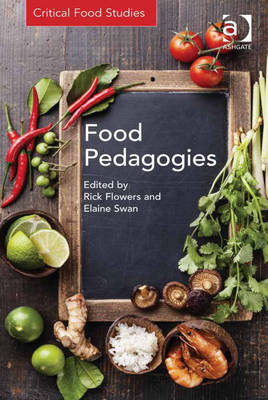Critical Food Studies
2 total works
Food and Media: Practices, Distinctions and Heterotopias
Food is everywhere in contemporary mediascapes, as witnessed by the increase in cookbooks, food magazines, television cookery shows, online blogs, recipes, news items and social media posts about food. This mediatization of food means that the media often interplays between food consumption and everyday practices, between private and political matters and between individuals, groups, and societies.
This volume argues that contemporary food studies needs to pay more attention to the significance of media in relation to how we `do’ food. Understanding food media is particularly central to the diverse contemporary social and cultural practices of food where media use plays an increasingly important but also differentiated and differentiating role in both large-scale decisions and most people's everyday practices.
The contributions in this book offer critical studies of food media discourses and of media users’ interpretations, negotiations and uses that construct places and spaces as well as possible identities and everyday practices of sameness or otherness that might form new - or renew old - food politics.
In recent years everyone from politicians to celebrity chefs has been proselytizing about how we should grow, buy, prepare, present, cook, taste, eat and dispose of food. In light of this, contributors to this book argue that food has become the target of intensified pedagogical activity across a range of domains, including schools, supermarkets, families, advertising and TV media. Illustrated with a range of empirical studies, this edited and interdisciplinary volume - the first book on food pedagogies - develops innovative and theoretical perspectives to problematize the practices of teaching and learning about food. While many different pedagogues - policy makers, churches, activists, health educators, schools, tourist agencies, chefs - think we do not know enough about food and what to do with it, the aims, effects and politics of these pedagogies has been much less studied.
Drawing on a range of international studies, diverse contexts, genres and different methods, this book provides new sites of investigation and lines of inquiry. As a result of its broad ranging critical evaluation of `food as classroom’ and `food as teacher’, it provides theoretical resources for opening up the concept of pedagogy, and assessing the moralities and politics of teaching and learning about food in the classroom and beyond.

